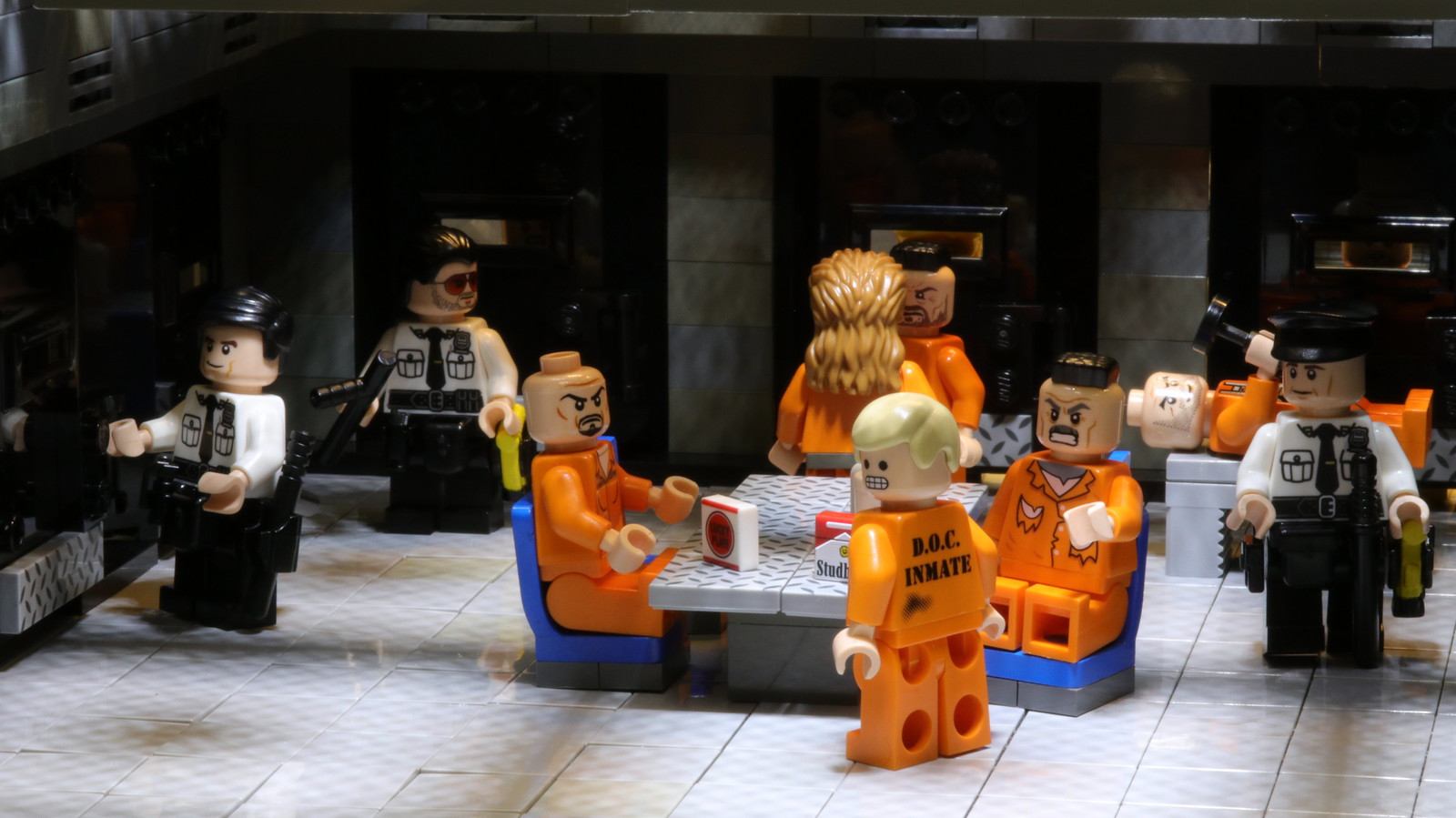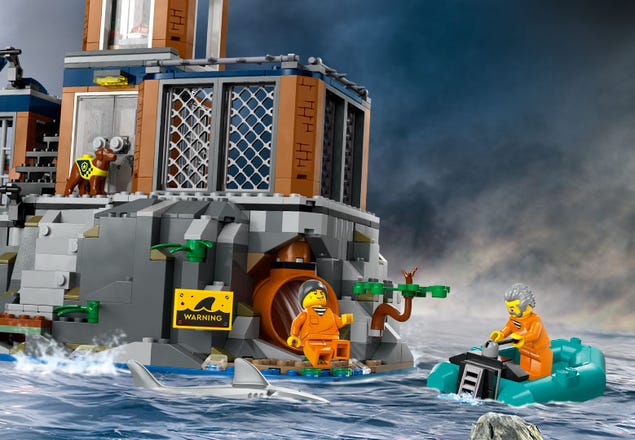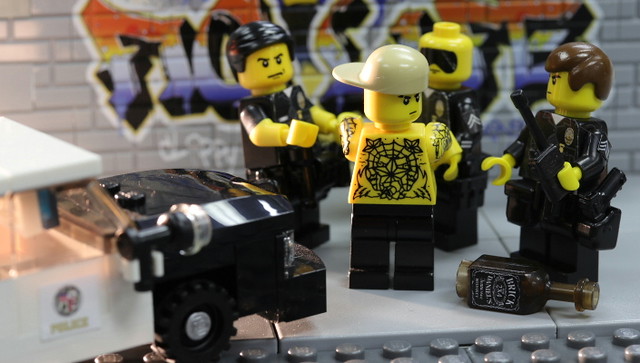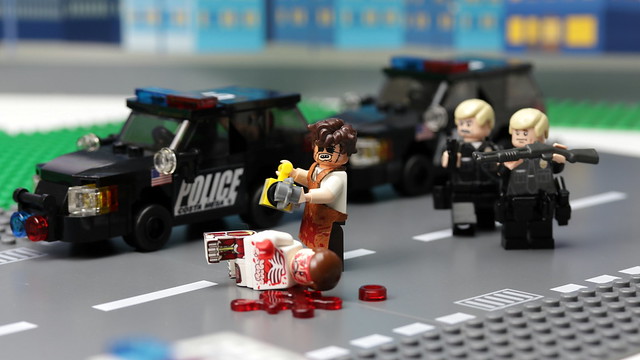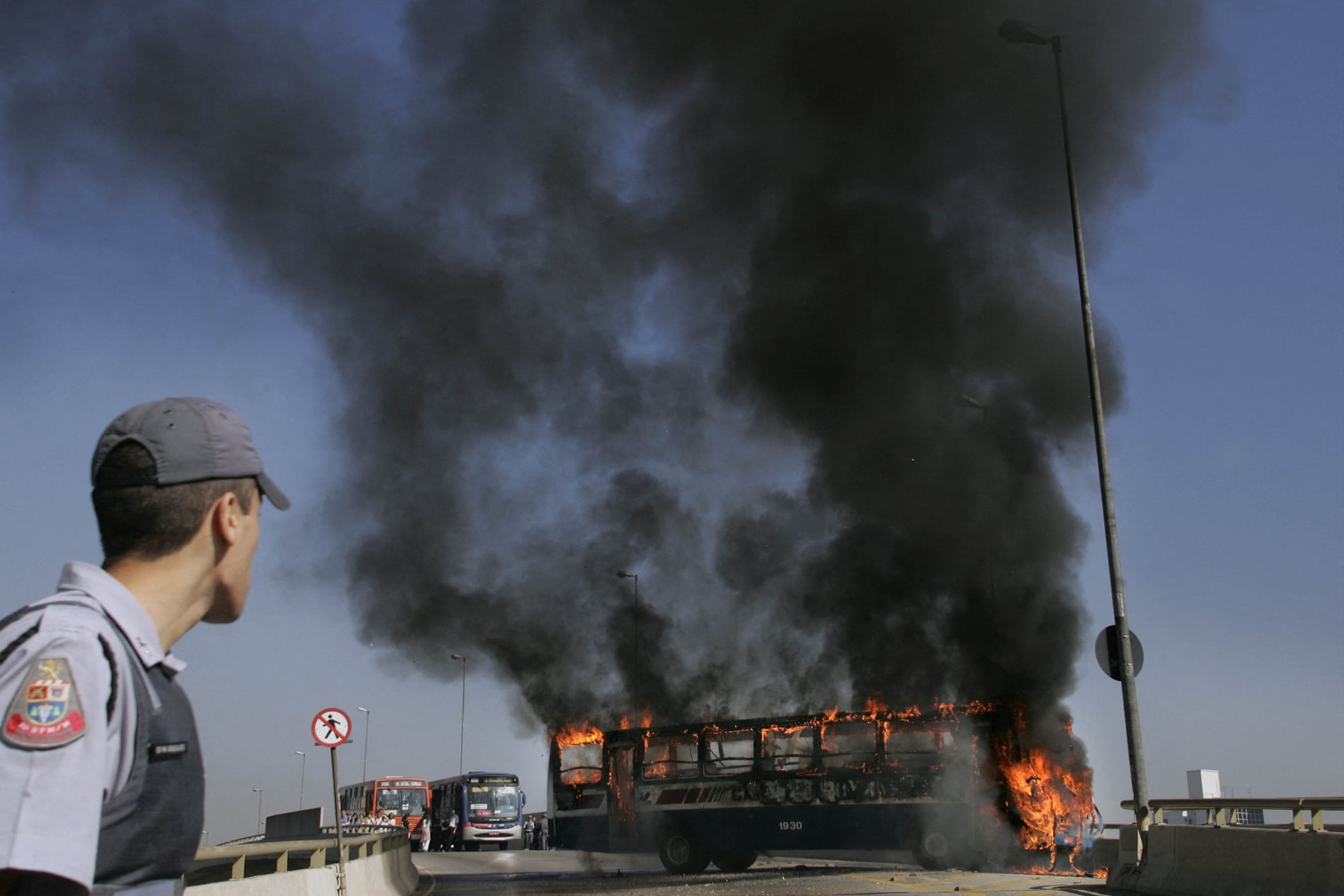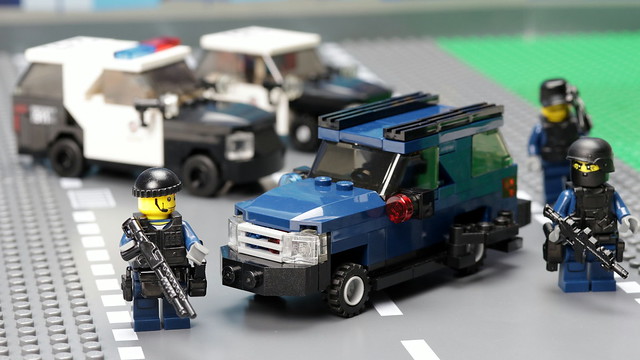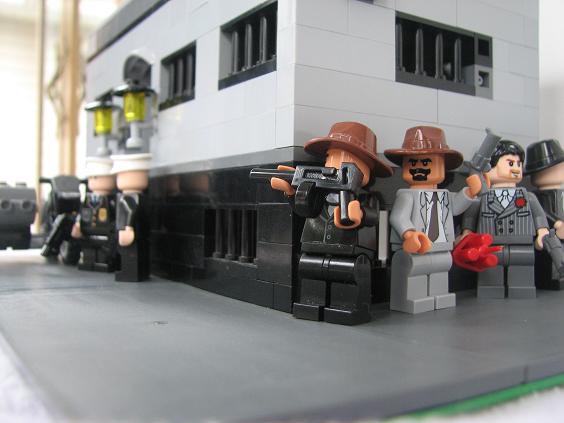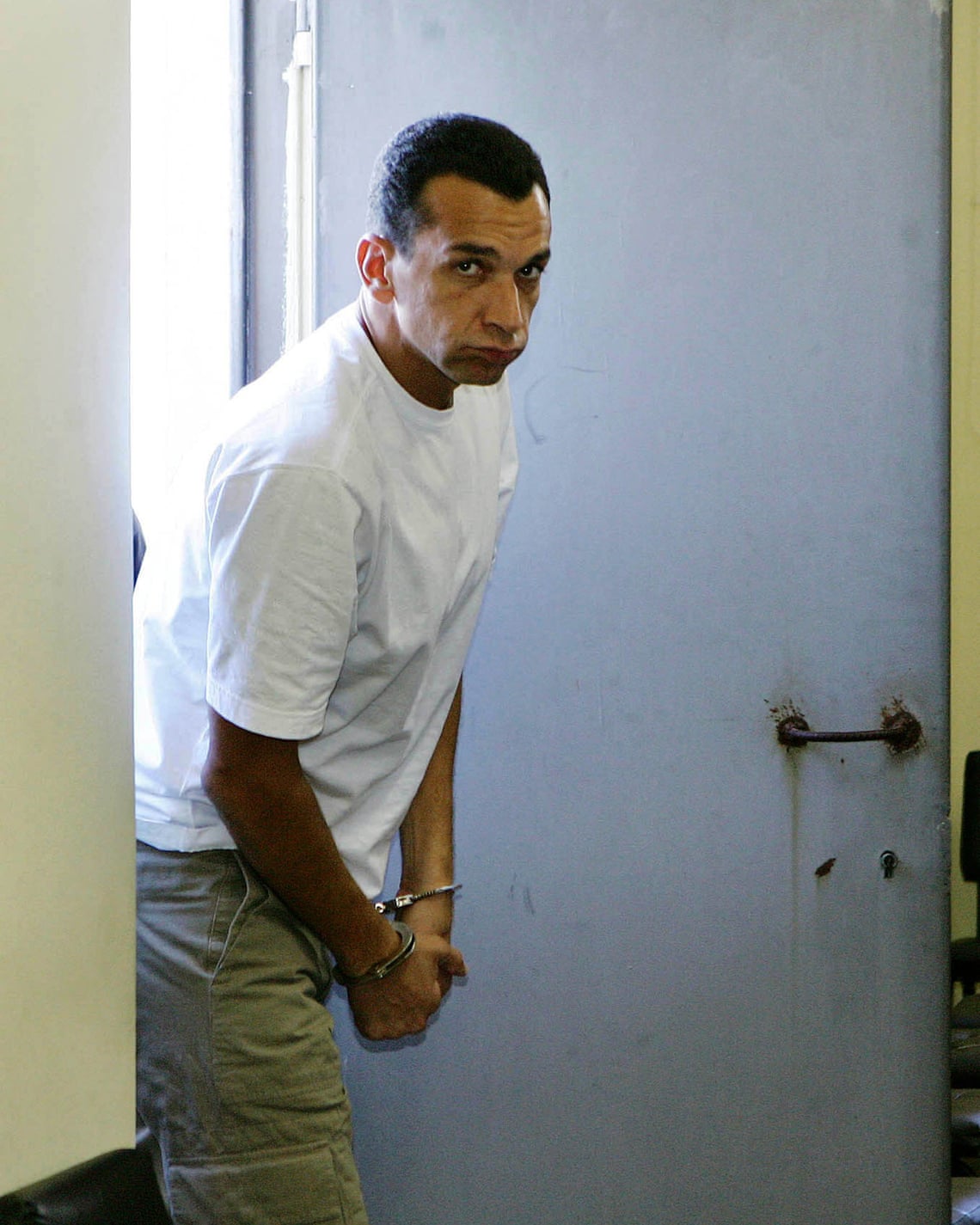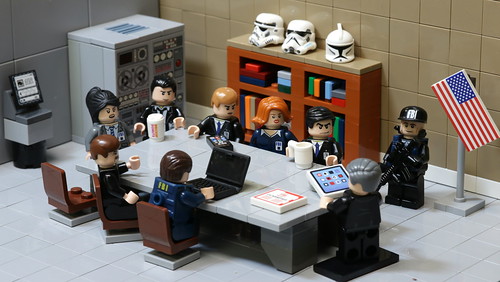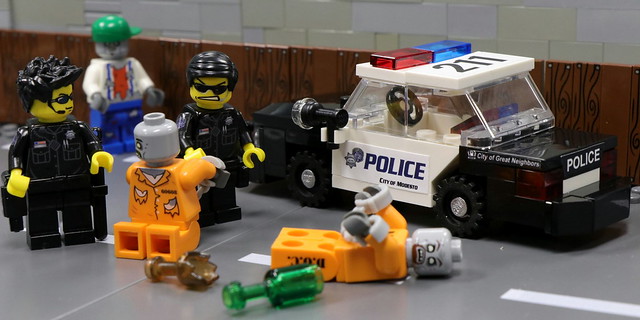- Joined
- Jan 17, 2010
- Messages
- 4,569
- Reaction score
- 5,541
Two fugitives eluded law enforcement for 51 days, indicating a widening network for crime factions CV and PCC
Tom Phillips and Tiago Rogero in Rio de Janeiro
Thu 11 Apr 2024 11.30 BST
After nearly two months on the run, the Amazon outlaws nicknamed Hammerhead and Armadillo might have felt they were nearing the home straight – albeit a long and muddy one.
Just ahead over the Tocantins River lay the Trans-Amazonian highway, a rundown and poorly patrolled jungle track that cuts more than 1,200 miles east-west across the largest rainforest on Earth. After completing that gruelling journey, the fugitives reportedly hoped to sneak across the border into Bolivia, far from the long hand of the Brazilian law.
Then, at about 1.30pm last Thursday, federal police scuttled their audacious plan, intercepting the runaways as they approached the bridge into the Amazon city of Marabá. “He panicked and started swerving all over the shop,” one officer said of Hammerhead, a convicted killer whose real name is Rogério Mendonça.
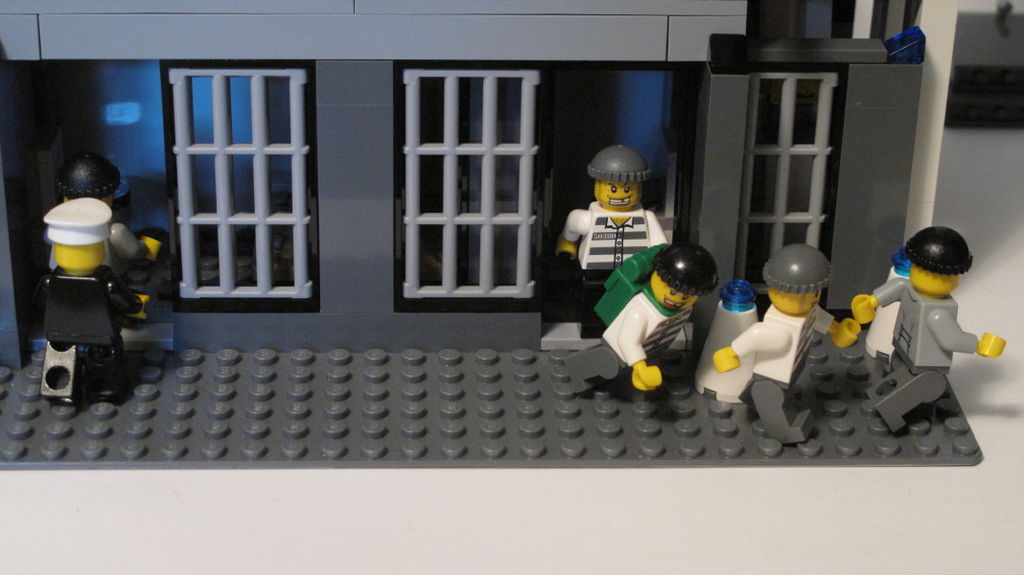
Shots were fired. The men were captured. And one of the most dramatic manhunts in recent Brazilian history was over, 51 days after the pair had somehow broken out of a maximum-security federal prison in the north-eastern city of Mossoró. “They’re going back to the place they came from,” celebrated the justice minister, Ricardo Lewandowski, hailing “a victory of the Brazilian state”.

The detention of Mendonça and his accomplice, Deibson Nascimento, came as a relief to the Brazilian government, under intense pressure to explain how two highly dangerous felons could escape from such a supposedly secure location.
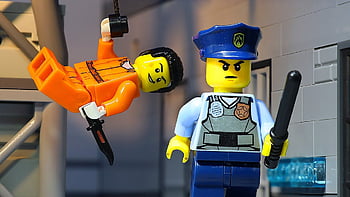
But the cinematic jailbreak has also exposed how Brazil’s two most powerful crime factions – Rio’s Red Command (CV) and São Paulo’s First Capital Command (PCC) – have dramatically expanded their footprint in the Amazon in recent years in order to exploit drug-trafficking routes and markets and other lucrative illegal economies, including gold mining and land-grabbing.
Mendonça and Nascimento, who are members of the CV, hail from the Amazon state of Acre and were in jail there until being moved to Mossoró after taking part in a 2023 rebellion in which five members of a rival faction were killed, three of them beheaded.
Nascimento, a 33-year-old who was allegedly one of the CV’s first members in Acre, was arrested in a small Amazonian border town called Brasiléia in 2015 and was sentenced to more than 80 years in jail. His rap sheet includes trafficking, robbery and even the kidnapping of a Bolivian politician.
Mendonça, 35, who is also nicknamed Cherub, was reportedly serving a 74-year sentence for crimes including robbery and ordering the 2021 murder of a teenager on Acre’s border with Amazonas state.
At the time of their arrest last week, the pair were driving through another Amazon state, Pará, and had visited its state capital, Belém – a key CV base – after absconding hundreds of miles up Brazil’s coastline in a small fishing vessel.
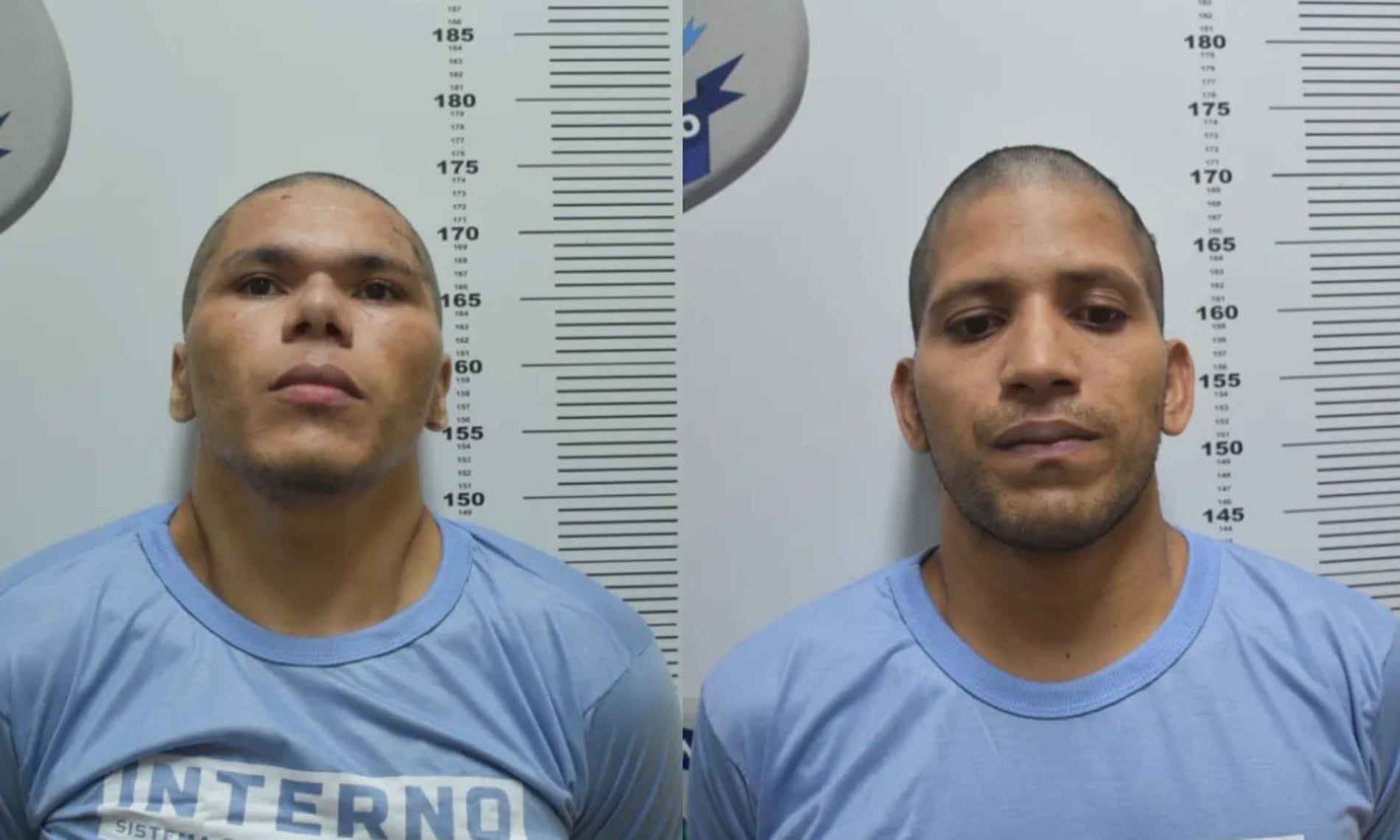
Rogério Mendonça, left, and Deibson Nascimento became the first to escape from Brazil’s top federal penitentiary system. Photograph: Polícia Federal
Aiala Couto, a Belém-based security expert, believes the pair fled to the Amazon precisely because of the region’s strategic importance to such factions. “That’s why they came to Pará after crossing four other states … Marabá is a city where the Red Command and PCC have a presence. Before that, they came through the Mosqueiro Island and through Belém, which means there is an organisation that offered them support and logistics, showing once more the relationships these groups have been establishing in the Amazon region,” said Couto, a researcher for the Brazilian Forum on Public Safety.
Experts say the CV and PCC began advancing into the Amazon about a decade ago, with the region becoming particularly crucial to the former after the 2016 assassination of a drug trafficker on the Brazil-Paraguay border. That killing helped the PCC control the smuggling corridor focused on Brazil’s midwestern border and forced the CV to look north to the Amazon.
But Brazil’s prison system itself has also been blamed for helping south-eastern criminal groups set up camp in the Amazon. “One of the factors that led to the expansion of these criminal organizations to other states – especially ones in the north and north-east – was the prison system, mass incarceration and the growth of the prison population; and also the transfer of prisoners from state to federal prisons,” said Couto.
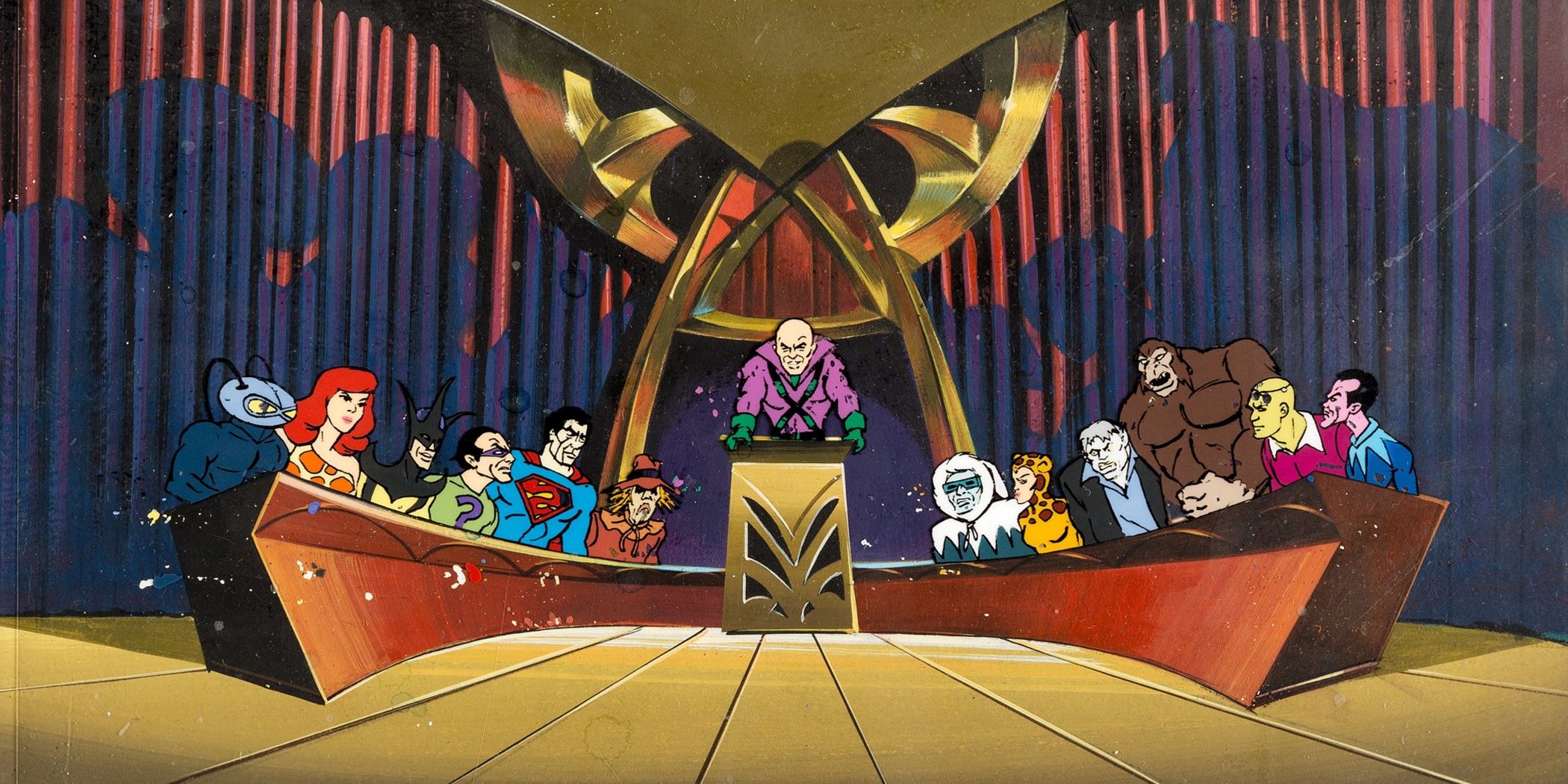
Criminal leaders from different corners of Brazil were inadvertently united after being moved from prisons in their home states to high-security prisons elsewhere. “This led to contact between these organisations that allowed them to spread and disseminate their activities throughout Brazil,” said Couto. At the same time, organisations that had previously only dominated their own states now had “representatives” in other regions, such as the Amazon.
It is unclear how long Hammerhead and Armadillo spent plotting their escape. Flávia Fróes, a Rio-based lawyer representing the two men, told local media they decided to flee because of poor treatment. “I had to escape because I was buried alive,” Fróes quoted Mendonça as saying.

The men put their plan into action at dawn on 14 February – the last day of carnival, when Brazilians are “more relaxed”, the justice minister later told reporters.
At the time of the jailbreak, the criminals were in neighbouring cells. One of them reportedly used a steel reinforcement bar from the wall to cut through a window, before they climbed on to the roof through a duct. There, the men found tools left by construction workers renovating part of the prison. They cut their way through the perimeter fence with a pair of pliers and fled. Guards only noticed their absence 90 minutes later.
The escape triggered a huge manhunt. Hundreds of police scoured the countryside for the Amazonian escapers. “It was like some shit out of a film. Loads of helicopters. Loads of drones,” Mendonça was overheard telling his girlfriend by phone. “The [searchers] got so close to us we could smell their stinky boots.”
After hiding near the prison for about a month, they reached a seaside fishing community called Icapuí and sailed north for six days towards Belém, a city close to one of the biggest ports in the Amazon and, therefore, a key location for smugglers moving South American cocaine to Europe. From there, they were driven south by four CV associates towards Marabá, where their sensational escape would come to an abrupt end.
The next day they were back in Mossoró. Hammerhead’s mother, Nelita Nogueira da Silva, told local TV: “They’re going to rot in jail.”

https://www.theguardian.com/world/2024/apr/11/brazil-gangs-amazon-jailbreak-manhunt
Tom Phillips and Tiago Rogero in Rio de Janeiro
Thu 11 Apr 2024 11.30 BST
After nearly two months on the run, the Amazon outlaws nicknamed Hammerhead and Armadillo might have felt they were nearing the home straight – albeit a long and muddy one.
Just ahead over the Tocantins River lay the Trans-Amazonian highway, a rundown and poorly patrolled jungle track that cuts more than 1,200 miles east-west across the largest rainforest on Earth. After completing that gruelling journey, the fugitives reportedly hoped to sneak across the border into Bolivia, far from the long hand of the Brazilian law.
Then, at about 1.30pm last Thursday, federal police scuttled their audacious plan, intercepting the runaways as they approached the bridge into the Amazon city of Marabá. “He panicked and started swerving all over the shop,” one officer said of Hammerhead, a convicted killer whose real name is Rogério Mendonça.

Shots were fired. The men were captured. And one of the most dramatic manhunts in recent Brazilian history was over, 51 days after the pair had somehow broken out of a maximum-security federal prison in the north-eastern city of Mossoró. “They’re going back to the place they came from,” celebrated the justice minister, Ricardo Lewandowski, hailing “a victory of the Brazilian state”.

The detention of Mendonça and his accomplice, Deibson Nascimento, came as a relief to the Brazilian government, under intense pressure to explain how two highly dangerous felons could escape from such a supposedly secure location.

But the cinematic jailbreak has also exposed how Brazil’s two most powerful crime factions – Rio’s Red Command (CV) and São Paulo’s First Capital Command (PCC) – have dramatically expanded their footprint in the Amazon in recent years in order to exploit drug-trafficking routes and markets and other lucrative illegal economies, including gold mining and land-grabbing.
Mendonça and Nascimento, who are members of the CV, hail from the Amazon state of Acre and were in jail there until being moved to Mossoró after taking part in a 2023 rebellion in which five members of a rival faction were killed, three of them beheaded.
Nascimento, a 33-year-old who was allegedly one of the CV’s first members in Acre, was arrested in a small Amazonian border town called Brasiléia in 2015 and was sentenced to more than 80 years in jail. His rap sheet includes trafficking, robbery and even the kidnapping of a Bolivian politician.
Mendonça, 35, who is also nicknamed Cherub, was reportedly serving a 74-year sentence for crimes including robbery and ordering the 2021 murder of a teenager on Acre’s border with Amazonas state.
At the time of their arrest last week, the pair were driving through another Amazon state, Pará, and had visited its state capital, Belém – a key CV base – after absconding hundreds of miles up Brazil’s coastline in a small fishing vessel.

Rogério Mendonça, left, and Deibson Nascimento became the first to escape from Brazil’s top federal penitentiary system. Photograph: Polícia Federal
Aiala Couto, a Belém-based security expert, believes the pair fled to the Amazon precisely because of the region’s strategic importance to such factions. “That’s why they came to Pará after crossing four other states … Marabá is a city where the Red Command and PCC have a presence. Before that, they came through the Mosqueiro Island and through Belém, which means there is an organisation that offered them support and logistics, showing once more the relationships these groups have been establishing in the Amazon region,” said Couto, a researcher for the Brazilian Forum on Public Safety.
Experts say the CV and PCC began advancing into the Amazon about a decade ago, with the region becoming particularly crucial to the former after the 2016 assassination of a drug trafficker on the Brazil-Paraguay border. That killing helped the PCC control the smuggling corridor focused on Brazil’s midwestern border and forced the CV to look north to the Amazon.
But Brazil’s prison system itself has also been blamed for helping south-eastern criminal groups set up camp in the Amazon. “One of the factors that led to the expansion of these criminal organizations to other states – especially ones in the north and north-east – was the prison system, mass incarceration and the growth of the prison population; and also the transfer of prisoners from state to federal prisons,” said Couto.

Criminal leaders from different corners of Brazil were inadvertently united after being moved from prisons in their home states to high-security prisons elsewhere. “This led to contact between these organisations that allowed them to spread and disseminate their activities throughout Brazil,” said Couto. At the same time, organisations that had previously only dominated their own states now had “representatives” in other regions, such as the Amazon.
It is unclear how long Hammerhead and Armadillo spent plotting their escape. Flávia Fróes, a Rio-based lawyer representing the two men, told local media they decided to flee because of poor treatment. “I had to escape because I was buried alive,” Fróes quoted Mendonça as saying.

The men put their plan into action at dawn on 14 February – the last day of carnival, when Brazilians are “more relaxed”, the justice minister later told reporters.
At the time of the jailbreak, the criminals were in neighbouring cells. One of them reportedly used a steel reinforcement bar from the wall to cut through a window, before they climbed on to the roof through a duct. There, the men found tools left by construction workers renovating part of the prison. They cut their way through the perimeter fence with a pair of pliers and fled. Guards only noticed their absence 90 minutes later.
The escape triggered a huge manhunt. Hundreds of police scoured the countryside for the Amazonian escapers. “It was like some shit out of a film. Loads of helicopters. Loads of drones,” Mendonça was overheard telling his girlfriend by phone. “The [searchers] got so close to us we could smell their stinky boots.”
After hiding near the prison for about a month, they reached a seaside fishing community called Icapuí and sailed north for six days towards Belém, a city close to one of the biggest ports in the Amazon and, therefore, a key location for smugglers moving South American cocaine to Europe. From there, they were driven south by four CV associates towards Marabá, where their sensational escape would come to an abrupt end.
The next day they were back in Mossoró. Hammerhead’s mother, Nelita Nogueira da Silva, told local TV: “They’re going to rot in jail.”

https://www.theguardian.com/world/2024/apr/11/brazil-gangs-amazon-jailbreak-manhunt


